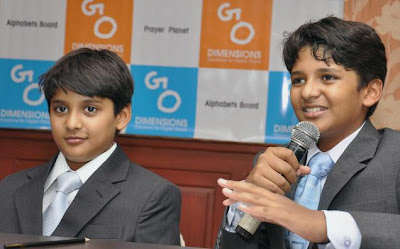Neha Juneja, a Student social entrepreneur, her
company Greenway Grameen Infra won the 2012 Intel Global Challenge at
Haas School of Business, University of California, Berkeley, receiving
$50,000 on November 9 amongst more than 150,000 students from more than
50 countries.
The Intel Global Challenge is a joint project of Intel and the UC Berkeley Lester Center for Entrepreneurship. Started in 2005, it rewards student entrepreneurs a total of $100,000 for innovative ideas that can make a positive impact on society.
Founded in 2010, the firm’s biomass-based stove with single-burner uses 65 per cent less fuel and produces 80 per cent less smoke than traditional stoves. The company targets consumers in rural areas.
Juneja, 27, co-founder and chief executive officer who had also won the Businessworld Young Entrepreneur Award in 2011 said, "I was surprised because the other participants were very good.
The Intel Global Challenge is a joint project of Intel and the UC Berkeley Lester Center for Entrepreneurship. Started in 2005, it rewards student entrepreneurs a total of $100,000 for innovative ideas that can make a positive impact on society.
Founded in 2010, the firm’s biomass-based stove with single-burner uses 65 per cent less fuel and produces 80 per cent less smoke than traditional stoves. The company targets consumers in rural areas.
Juneja, 27, co-founder and chief executive officer who had also won the Businessworld Young Entrepreneur Award in 2011 said, "I was surprised because the other participants were very good.
All of them had unique ideas, so I was a little nervous. It's like getting a dream award. This award is very important. Very!"
Juneja came up with this idea after a visit to a village in Wardha, Maharashtra, where she saw a small home with a television, refrigerator, mobile phones, and motorbike. Yet the lady of the house was cooking on a mud stove.
To develop the product, Juneja travelled to 22 states in India, understanding cooking habits across the country for a year. In this one year, she tested nine different designs before finalizing the Greenway stove that costs $23 and consumes one-third of the fuel a mud stove consumes. Also, unlike mud stoves, it does not produce carbon monoxide in the smoke.
Juneja says she and her five member team never thought of this as a social venture. They always considered it a business opportunity.
Neha has been involved in executing
climate change mitigation and adaptation projects across the country.
She has organized community-led projects and need-analysis consulting in
a wide array of areas including agro forestry, primary energy supply
and water access. Beyond this, she has been internationally recognized
for her excellence in product design. In addition to the numerous awards
she has helped GGI secure, Neha was named 2010's Brightest Young
Climate Leader by the Hindustan Times & British Council. She earned
her MBA from FMS, Delhi and a B.E. in Production & Industrial
Engineering, as well as undergoing training on climate change mitigation
and adaption at the Swedish Meterological & Hydrological
Institute.
---------------------------------------------------------------------------------










